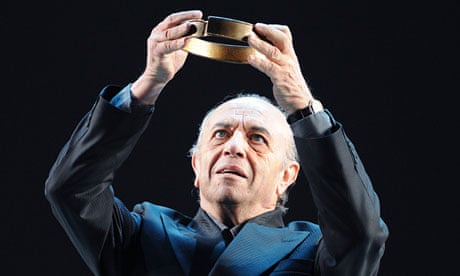Giuseppe Verdi's Old Testament epic established his reputation in 1842, and while he undoubtedly acquired far greater subtlety over the subsequent 50 years of his career, the cut and thrust of this early masterpiece displayed a sure-footed ability to make music embody drama. One of the finest features of the Royal Opera's shared production, which started life at La Scala in February, is Nicola Luisotti's conducting. Defining clearly what constitutes musical substance and what is essentially decoration, he lifts the score above accusations of crudity through a combination of immaculate balance and focused momentum.
The cast is strong. In the title role as the king of Babylon, veteran baritone Leo Nucci sounds weatherworn on his arrival as a vigorous conqueror in the Temple of Jerusalem, but he rises impressively to the challenge of the later scenes when Nabucco is stricken with physical and mental frailty. As Zaccaria, high priest of the Hebrews, Vitalij Kowaljow rallies the Jewish people with appropriate patriotic and religious zeal. As Nabucco's adopted daughter, Abigaille, Liudmyla Monastyrska carries all before her in a performance of tremendous vocal authority and dramatic panache. Both Marianna Pizzolato as Nabucco's true daughter, Fenena, and Andrea Carè as her Jewish lover, Ismaele, seize what opportunities come their way, and Robert Lloyd makes a suitably malign High Priest of Baal.
As presented in Alison Chitty's spare, semi-abstract designs and as extended by Luca Scarzella's videos, the primary reference point for Daniele Abbado's production is the plight of Jewish refugees in the 1930s, though other displaced groups are also suggested. In purely narrative terms, though, there's not enough visual differentiation between Jews and Babylonians for consistent clarity. Whichever side they're portraying, the Royal Opera Chorus maintain exceptional engagement, never more movingly than in Va, Pensiero, the so-called Chorus of the Hebrew Slaves, which is delivered with heart-stopping sensitivity.

Comments (…)
Sign in or create your Guardian account to join the discussion